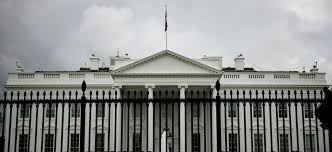
Breaking News
 SpaceX will launch next Starship flight in 'about 3 weeks,' Elon Musk says
SpaceX will launch next Starship flight in 'about 3 weeks,' Elon Musk says
 Nicotine pouch poisoning in young children surges 760% as FDA-approved products raise...
Nicotine pouch poisoning in young children surges 760% as FDA-approved products raise...
 How America's entertainment industry manufactured silence on Gaza
How America's entertainment industry manufactured silence on Gaza
 Organ harvesting exposed: The chilling reality of 'brain death' and how hospitals profit...
Organ harvesting exposed: The chilling reality of 'brain death' and how hospitals profit...
Top Tech News
Magic mushrooms may hold the secret to longevity: Psilocybin extends lifespan by 57%...
 Unitree G1 vs Boston Dynamics Atlas vs Optimus Gen 2 Robot– Who Wins?
Unitree G1 vs Boston Dynamics Atlas vs Optimus Gen 2 Robot– Who Wins?
 LFP Battery Fire Safety: What You NEED to Know
LFP Battery Fire Safety: What You NEED to Know
 Final Summer Solar Panel Test: Bifacial Optimization. Save Money w/ These Results!
Final Summer Solar Panel Test: Bifacial Optimization. Save Money w/ These Results!
 MEDICAL MIRACLE IN JAPAN: Paralyzed Man Stands Again After Revolutionary Stem Cell Treatment!
MEDICAL MIRACLE IN JAPAN: Paralyzed Man Stands Again After Revolutionary Stem Cell Treatment!
 Insulator Becomes Conducting Semiconductor And Could Make Superelastic Silicone Solar Panels
Insulator Becomes Conducting Semiconductor And Could Make Superelastic Silicone Solar Panels
 Slate Truck's Under $20,000 Price Tag Just Became A Political Casualty
Slate Truck's Under $20,000 Price Tag Just Became A Political Casualty
 Wisdom Teeth Contain Unique Stem Cell That Can Form Cartilage, Neurons, and Heart Tissue
Wisdom Teeth Contain Unique Stem Cell That Can Form Cartilage, Neurons, and Heart Tissue
 Hay fever breakthrough: 'Molecular shield' blocks allergy trigger at the site
Hay fever breakthrough: 'Molecular shield' blocks allergy trigger at the site
The Systematic Unraveling of the Administrative State

The fear of being assassinated like his predecessor James Garfield convinced him to back the legislation. The case for passage: government needs professionals with institutional knowledge. Technicians were changing the world, so why not government too?
Science and engineering were the rage – electricity, steel bridges, telegraphic communications, internal combustion, photography – so surely public affairs needed the same level of expertise. Who could deny that civil service could do a better job than the cousins and business partners of professional politicians?
That's how it started. What was once called government of, by, and for the people was derided as the hopelessly corrupt "spoils system," a phrase that reflected genius marketing. So it was overthrown in favor of "merit-based" hiring in the executive, a staff not yet permanent or huge, but the proverbial camel now had its nose under the tent.
Through two world wars and the Great Depression, and then the Cold War, what landed on the other side was something the Constitution's Framers never imagined. We had huge governing systems in giant bureaucracies staffed by employees who could not be fired. It was left to them to implement, but really create the operational framework for the whole of civil society.
It was a state within a state, one with many layers, including that which was and is classified.
Industry and media long ago caught on that the civil service was a more reliable source of information and institutional continuity than the elected or appointed branches of government. Serving in government became a mark of credibility in industry, and so the revolving door was in constant operation. Media and the deep state, including its military and intelligence sectors, developed a mutually beneficial relationship that allowed for the manipulation of the public mind.
The best thing about the new system was that hardly anyone in public life really understood it. The schoolkids were still taught that there are three branches of government with checks and balances between them. Public life has been long dominated by elections with fierce ideological battles that eventually became more like window dressing, the results of which did not matter much for the practical affairs of state. It was the illusion of democracy.

 AI Getting Better at Medical Diagnosis
AI Getting Better at Medical Diagnosis

